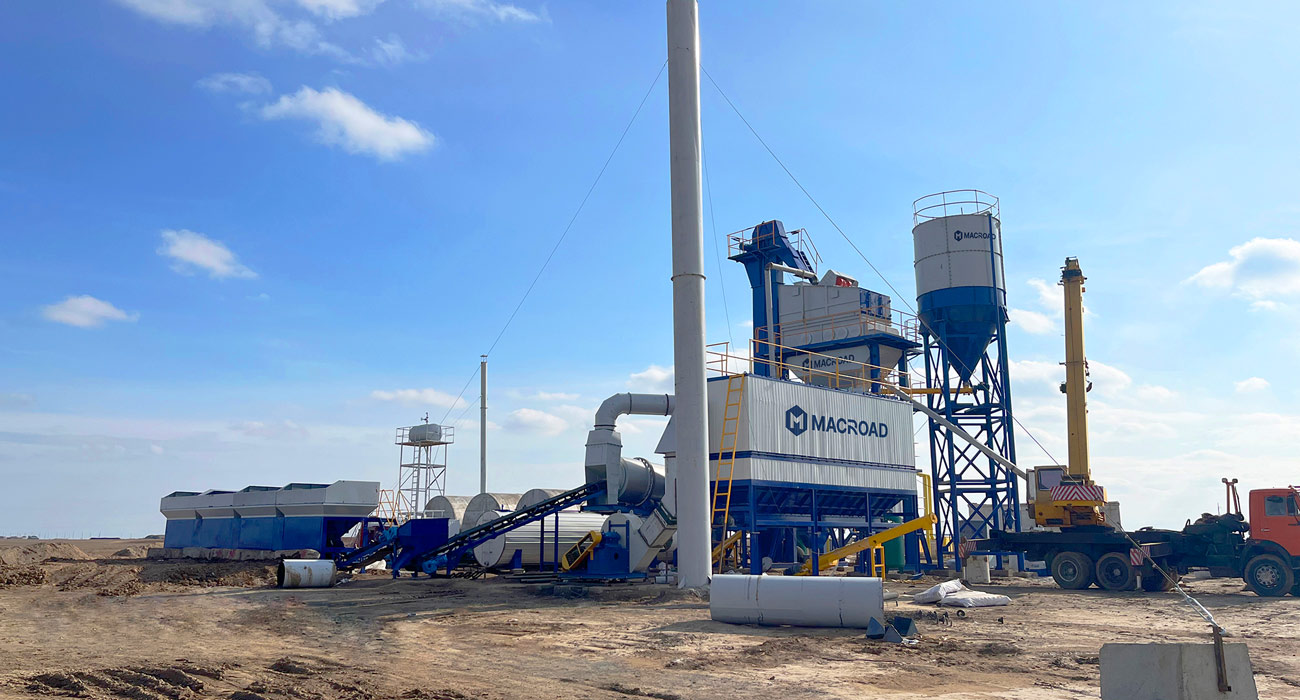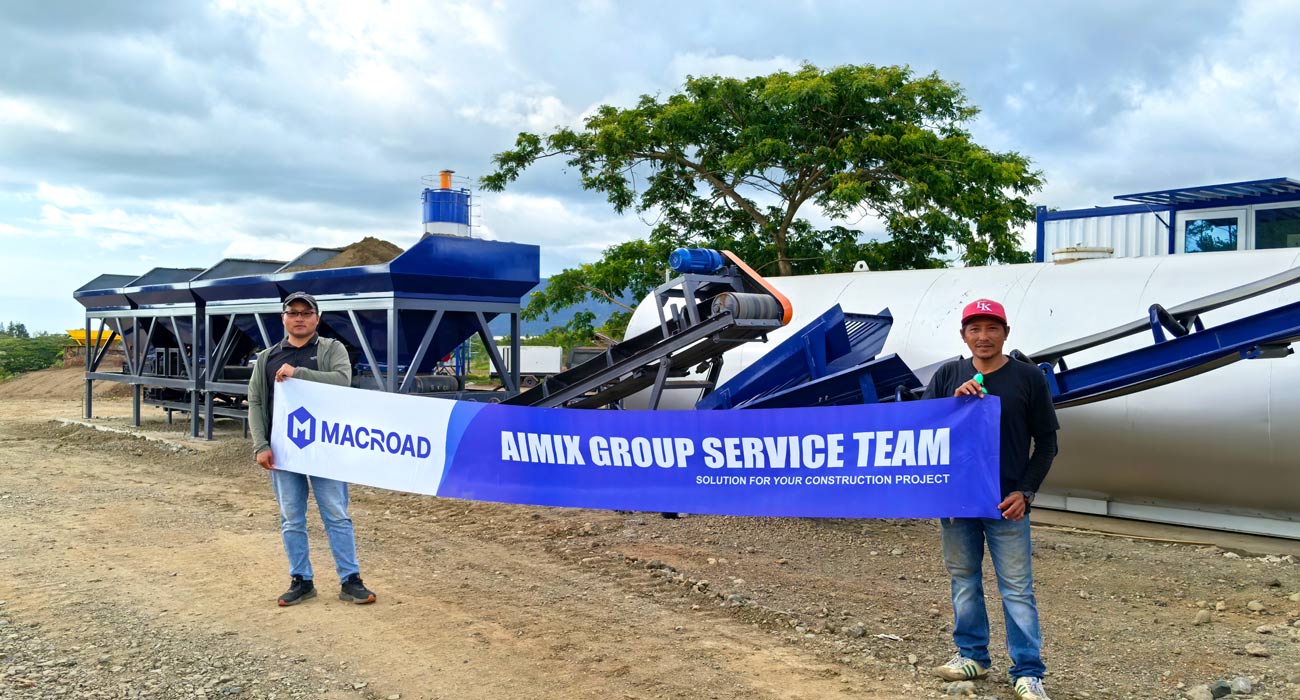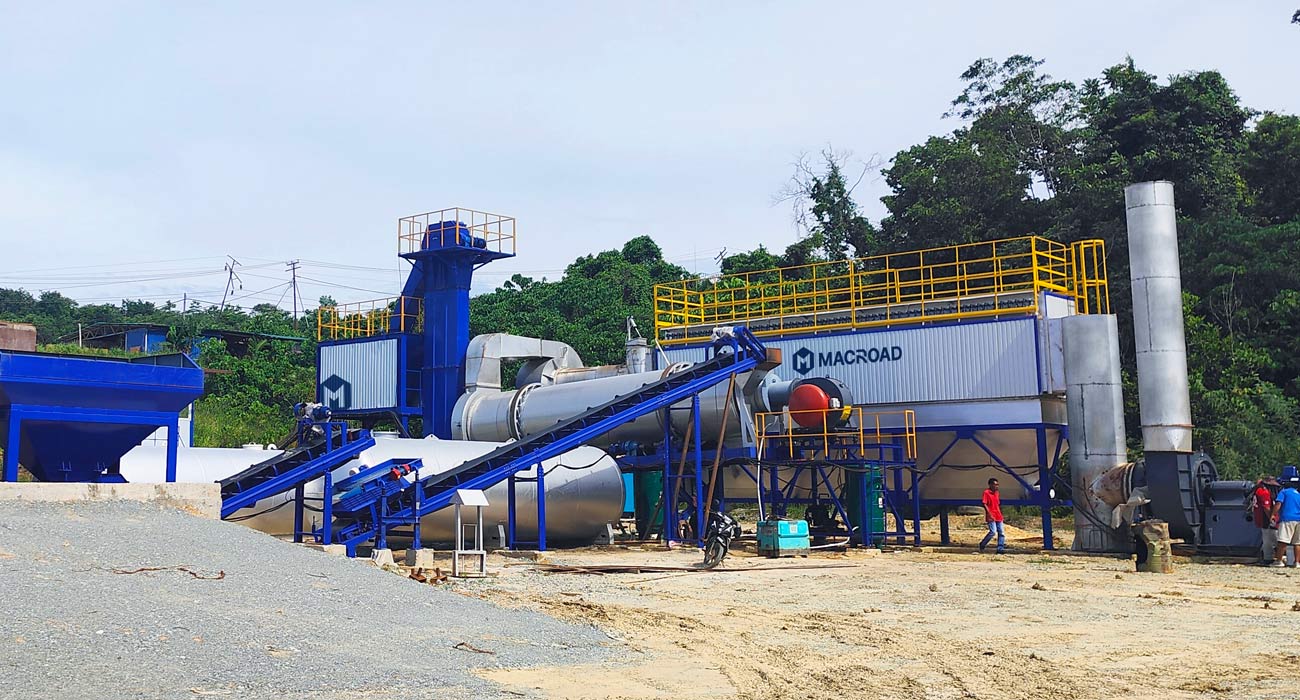Municipal roads construction often comprises multiple small-scale projects that are dispersed across various locations, each with strict timelines. In this context, selecting the right equipment is crucial. Mini asphalt batching plants offer distinct advantages and disadvantages compared to larger stationary asphalt batching plants and asphalt drum plants, particularly concerning equipment transportation, installation, commissioning, and the ability to meet diverse asphalt mixture requirements. This article examines these factors to help stakeholders make informed decisions.

Advantages of Mini Asphalt Batching Plants
One of the primary advantages of mini asphalt batching plants is their convenience in relocation. These compact units are designed for easy transportation, allowing contractors to set up operations quickly at various project sites. This flexibility is particularly beneficial for municipal roads construction, where project sites may be scattered and the need for rapid deployment is critical.
In addition to mobility, mini asphalt batching plants can be more cost-effective for small-scale projects. They typically require less initial investment and lower operational costs compared to large stationary asphalt batching plant. This affordability makes them an attractive option for municipalities managing tight budgets while still needing high-quality asphalt mixtures for different road functional areas.
However, while mini asphalt batching plants excel in relocation and cost, they can face challenges in production efficiency and mixture quality stability. Their smaller capacity may limit the volume of asphalt produced per hour, potentially leading to delays in meeting project deadlines, especially during peak construction periods.

Competing with Large-Scale Equipment
Large-scale stationary asphalt batching plant and asphalt drum plant is engineered for high efficiency and consistent mixture quality. They can produce larger quantities of asphalt, which is advantageous for extensive projects requiring significant material volumes. To serve municipal projects effectively, these larger plants must optimize transportation and installation processes to minimize time and cost losses.
For instance, logistics planning is essential when transporting large equipment to multiple sites. Streamlining the transportation routes and using local storage facilities can help reduce downtime associated with moving large machinery. Additionally, engaging local installation teams familiar with regional regulations can expedite the commissioning process, ensuring that large-scale equipment is operational as quickly as possible.
Despite their advantages, large-scale plants may not always be the best fit for municipal projects with tight timelines and scattered locations. The overhead costs associated with transporting and installing this equipment can be substantial, which might negate the benefits of their higher production capacities.

Impact on Project Progress and Cost Control
The choice between mini asphalt batching plant and larger stationary asphalt batching plants significantly impacts the overall progress control and cost management of municipal roads construction projects. Mini plants allow for quick setup and adaptability, which is crucial for meeting strict deadlines across multiple small-scale projects. Their ability to produce asphalt on-site reduces transportation costs for materials, further supporting budget control.
Conversely, relying on large-scale equipment for municipal projects may lead to longer lead times and higher logistics expenses. If not managed properly, the use of stationary plants can introduce delays that disrupt project schedules and inflate costs. Therefore, project managers must weigh the benefits of high production capacity against the logistical challenges posed by larger equipment.
In conclusion, while mini asphalt batching plants offer significant advantages for municipal roads construction, including mobility and lower costs, large-scale stationary asphalt batching plants and asphalt drum plants present their own efficiencies in production. The decision regarding which equipment to utilize should be guided by project-specific needs, timelines, and budgetary constraints. By carefully evaluating these factors, stakeholders can ensure that they choose the most effective solution for their municipal road construction projects, ultimately leading to successful and timely project completions.
